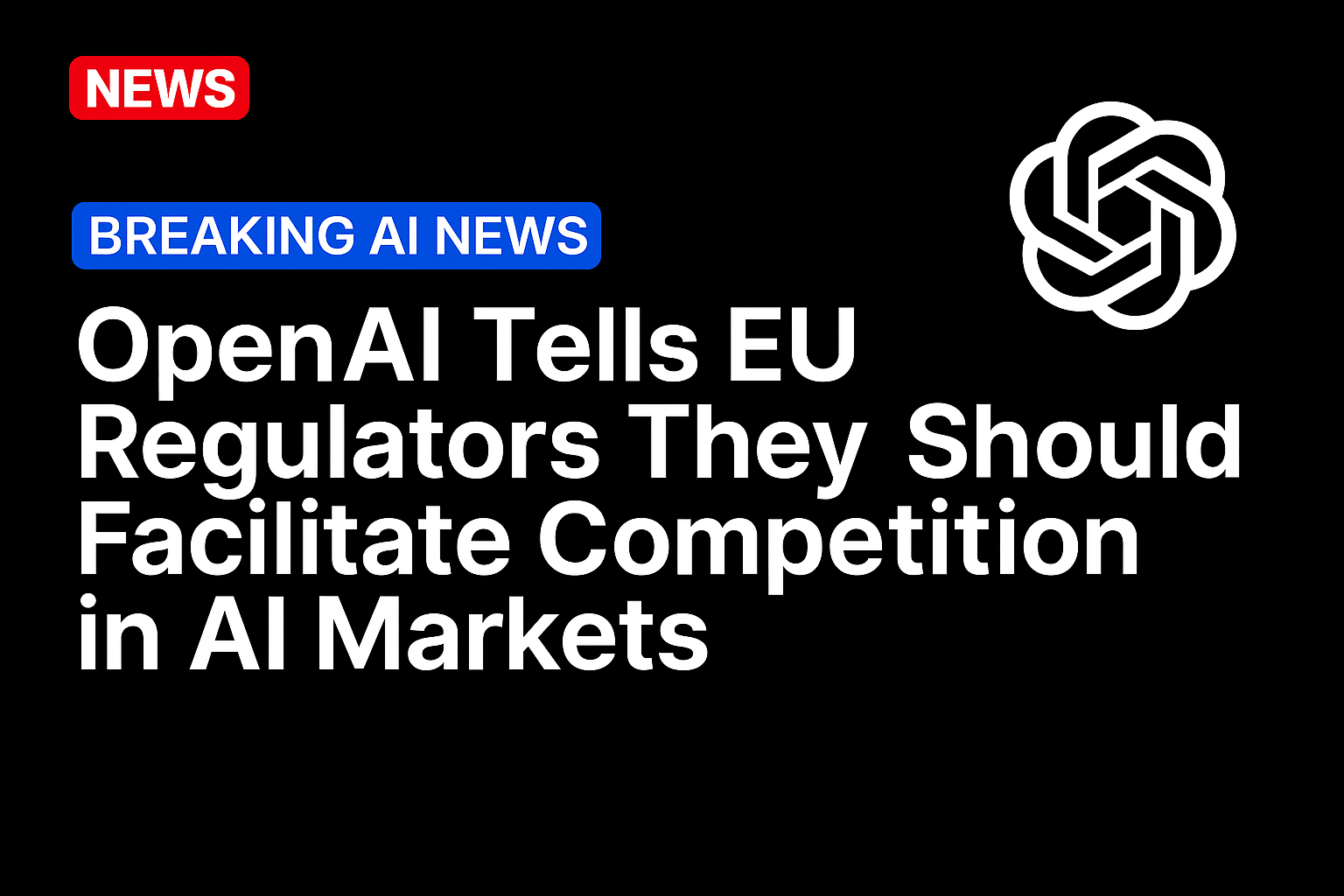
OpenAI told representatives of the European Commission that the company faces difficulties in competing with “entrenched companies” in digital markets and that regulators should continue to be vigilant to facilitate competition in the markets for artificial intelligence-based services.
The main points raised by the artificial intelligence startup were recorded in the meeting minutes of a Sept. 24 meeting of OpenAI and representatives of the office of Commissioner Teresa Ribera, whose responsibilities include the European Union’s competition policy.
The subject matter of the meeting was “Competition policy and Digital Markets Act,” according to the minutes.
“The interest representatives [OpenAI] explained the difficulties they face in competing with entrenched companies in a complex nexus of digital markets, from cloud computing to app developments,” the minutes said.
“The interest representatives emphasized the need for continued vigilance and timely action by regulatory agencies, to avoid the lock-in of customers by large platforms and to facilitate competition from companies like OpenAI,” the minutes said.
The minutes added that OpenAI said “access to key data is essential” for competition.
Bloomberg flagged the meeting minutes in a Thursday (Oct. 9) report and added that an unnamed source said that during the meeting, OpenAI was referring to Google, Microsoft and Apple. It added that those companies declined to comment.
The Commission’s meeting minutes did not name companies other than OpenAI.
Bloomberg reported that the meeting did not mark a formal antitrust complaint but is likely to raise tensions among the companies. The report noted that OpenAI and Microsoft have increasingly become competitors and are currently realigning their partnership.
OpenAI declined to provide further comment about the meeting to Bloomberg but pointed to a blog post about AI competition.
In that Aug. 5 blog post, OpenAI Global Affairs discussed the antitrust case targeting Google and its search business and said the remedy in that case involves not only online search but also AI.
“As more people adopt AI, Google continues to dictate terms around access to data and create distribution bottlenecks, including access to prime real estate on mobile devices, browsers, and at the top of its search results,” OpenAI’s post said. “The next generation of technologies we use — and whether or not their benefits will be broadly distributed or concentrated in the hands of a few (a movie we’ve seen before) — will be shaped by the court’s decision and how policymakers approach this issue.”
Source: https://www.pymnts.com/

